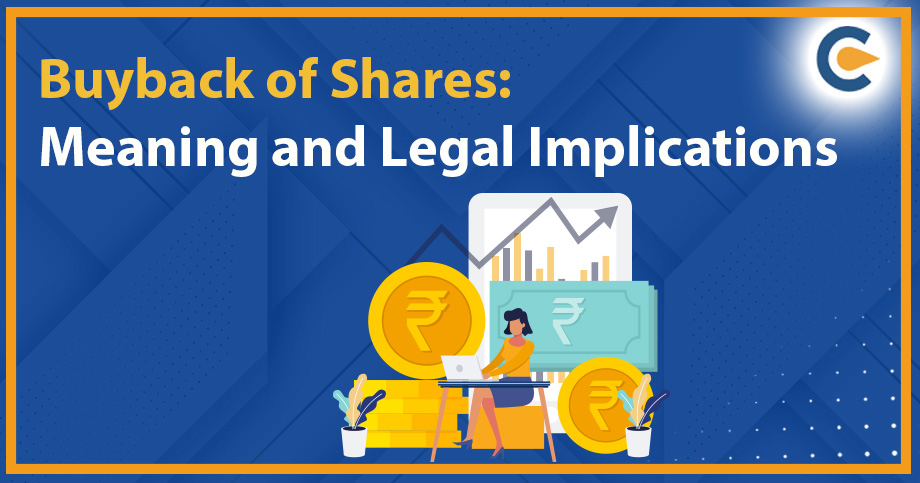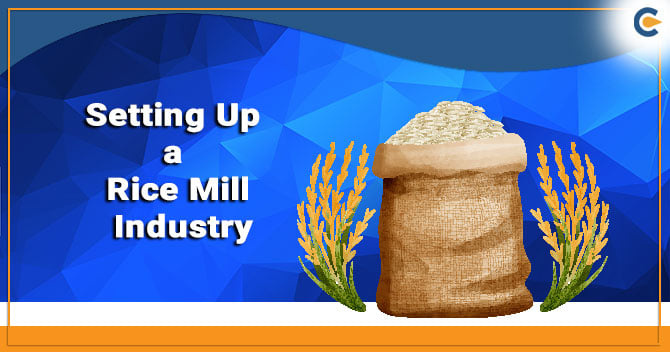Buyback of shares refers to a process of share acquisition from the shareholders for an amount greater than the market price. This process reduces the shares available in the market, thereby ensuring high earnings per share for the company. It is an option accessible to shareholders to depart from the company business. The concept of Buyback of shares is mentioned in section 68 of the Companies Act, 2013[1].
Reasons why Buyback of shares makes sense to the business
- It amplifies the earnings per share;
- It prevents shareholders from being discouraged owing to the price fall
- It can amplify the shareholding of the promoters, thereby mitigating the chance of the takeover
- It can elevate the return on capital and net worth
- It ensures the availability of surplus cash to the shareholder
Methods for performing Buyback of Shares
A Company can conduct a buyback of shares and other securities from:
- The active shareholders on a proportionate basis via the tender offer
- The open market via Stock Exchange or Book-building process, as long as no buyback for 15% or more of the paid-up capital and company’s reserve can be made via an open market.
- From odd-lot holders.
Sources relating to Buyback of Shares
A Company can acquire its shares and other securities via
- It’s free to reserve; or
- Securities premium account; or
- The issue proceeds concerning any share or other securities.
However, the Buy-back of any type of shares or securities cannot be possible via proceeds of the erstwhile issue of the same shares or securities.
Legal implications around Buyback of Shares
Section 68 of the Companies Act 2013 pens down the following conditions around the Buyback of shares:
- The article must authenticate buyback conditions; if not, it must undergo an amendment via a special resolution passed in a General Meeting,
- Buyback cannot be possible without being approved in the general meeting via special resolution.
Note: companies are not required to comply with the above conditions and can go for Buyback directly if the Buyback amounts to less than 10 percent of the total paid-up capital and the company’s free reserves
- There is a limit on how much amount of shares a company can acquire in an FY. In Buyback, this limit has been capped at 25% of the paid-up share capital. Anymore more than that is not legally permissible.
Note: The paid-up share capital comprises preference and equity share capital. Whereas free reserves entail securities premiums.
- After the Buyback, the company must ensure that the debt-to-equity ratio does not surpass 2:1.
- Only fully paid-up shares can make their way to the company in an FY.
- A company must share its insolvency via Form SH-9 to RoC. The form must enclose the signature of at least 2 directors.
- The notice concerning the meeting should be accompanied by an annexure highlighting the following details:
- Comprehensive details about the material facts;
- Reasons for Buyback of shares
- Class of shares falling under Buyback
- The amount invested relating to the Buyback
- Time requires for performing the buyback activity
Other norms around the Buyback of shares
Following are some other norms around the Buyback of Shares:
- Companies must keep track of their Buyback in the register based on Form SH-10.
- Return filing of the Buyback is mandatory. Hence, companies must file it without fail via form SH-11. The said should be accompanied by Form SH-15 (compliance certificate) enclosing the signature of 2 directors. Note: In companies where the managing director exists, the signature of such personnel is compulsory on the said forms.
- A physical copy of the acquired share must cease to exist within 7 days of the Buyback.
- There should be a difference of six months between the act of Buyback and the release of new shares
- Two buybacks cannot occur in the same year. There should be a difference of one year.
- The buyback formalities must be completed within 1 year from the date on which it was approved via special resolution.
What is the role Capital Redemption Reserve Account in Buy back of shares?
According to section 69 of the Companies Act, 2013, if any company performs buyback activity by leveraging free reserves or a security premium account, the company must transfer the amount equivalent to the share’s nominal value to the Capital Redemption Reserve Account. The balance sheet must reflect such transfer without fail as it is a mandate. The said account can be used to pay unissued shares to the members in the form of fully paid bonus shares.
Conditions that deter companies from performing buyback activity
In the purview of section 70 of the Companies Act, 2013, a company is restrained from performing Buyback of its securities, directly or indirectly;
- Via any subsidiary, including those owned by the company
- Via investment or pool of invested companies
- When a company has flagged for payment default concerning deposits or interest thereon or in debentures’ redemption or preference shares or term loan’s repayment. The prohibition will cease to exist if such defaults are corrected and no other default is committed for the subsequent 3 years.
- When a company has been flagged by authority for filing default concerning annual returns and declaration of financial statements and dividends.
Conclusion
A surplus fund is a boon for any organization. But its effective utilization can be tricky. Some companies try to allocate such funds to the acquisition or other business areas but often fail to avail of the expected outcomes. Buyback of shares has remained one of the prominent choices for companies that sit on healthy cash surplus. It is a kind of strategic investment that mitigates fundamental issues like reduced earnings per share, sub-par debt-to-equity ratio, high liquidity, and chances of a takeover. The Buyback of shares is a win-win proposition for both companies and shareholders.
Read our Article:Buyback of Shares and other Securities: A Complete Overview











